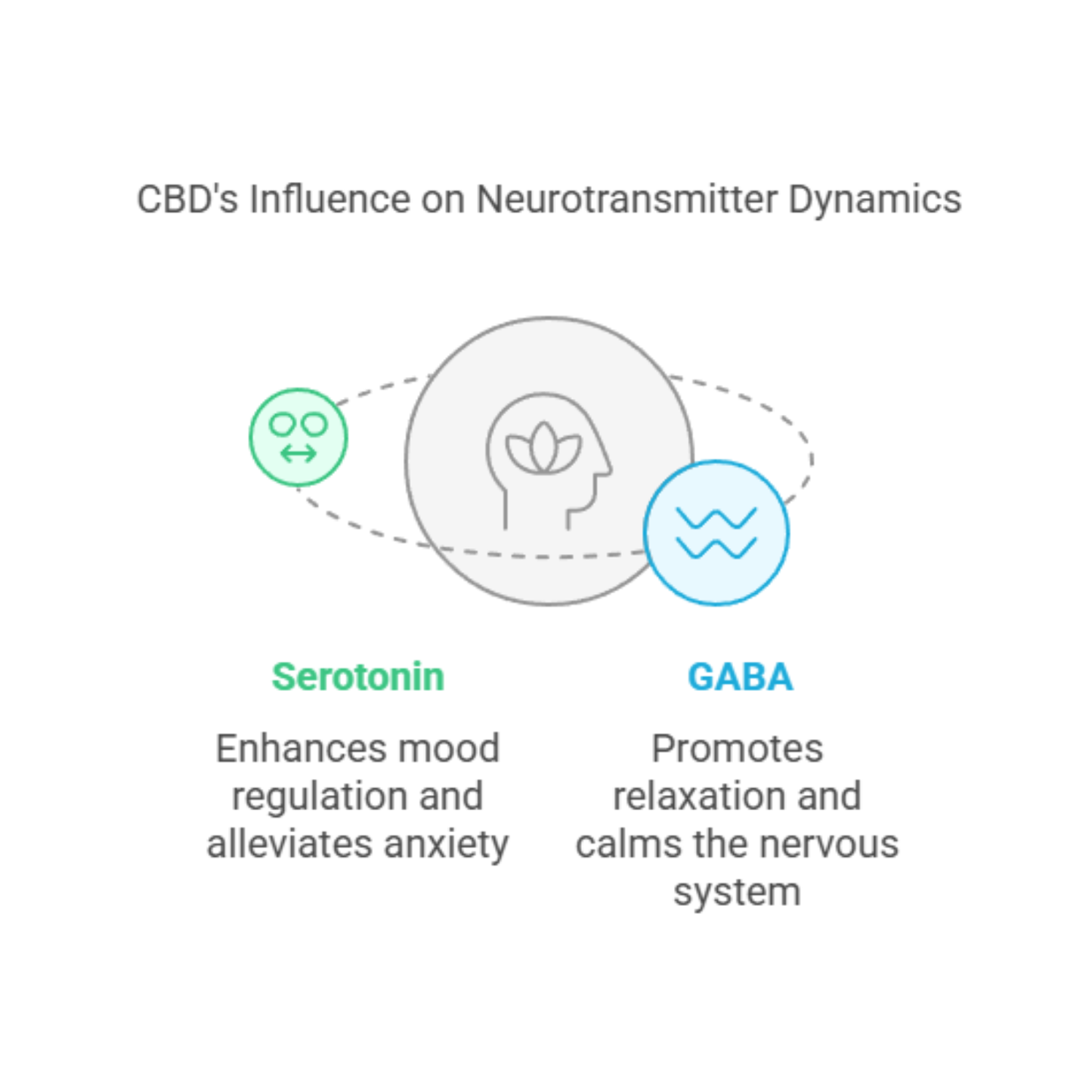10% OFF for First Time Customers
To celebrate our online store opening, all first time customers receive 10% OFF. Copy the promo code below and paste it in the order page. Valid for pickup and local delivery orders only.

Have you ever wondered how hemp-derived CBD interacts with your brain to potentially improve your mood and mental health? Let's dive into the fascinating world of receptors and neurotransmitters to uncover the science behind CBD's effects on the brain.
The endocannabinoid system (ECS) is like your body’s internal balance manager. It’s a network of receptors and molecules spread throughout the body, actively helping to maintain harmony. The ECS plays a key role in regulating mood, sleep, appetite, and stress, ensuring everything stays balanced and functions smoothly. Think of it as your body's way of keeping things in check

Receptors are like tiny locks on the surface of your cells, waiting for the right key to come along and unlock them. In the case of CBD, these locks are known as cannabinoid receptors, specifically CB1 and CB2. When CBD enters your system, it interacts with these receptors, triggering various physiological responses.

Neurotransmitters are the messengers that carry signals between neurons in your brain. When CBD binds to cannabinoid receptors, it can influence the release of neurotransmitters like serotonin and dopamine. These neurotransmitters play a crucial role in regulating mood, anxiety, and overall mental well-being.

By modulating the activity of neurotransmitters, CBD may help regulate mood and reduce anxiety. For example, CBD has been shown to increase serotonin levels, which can have a calming effect on the brain. This may explain why some people experience a sense of relaxation and improved mood after consuming CBD.
Behind the scenes, CBD also interacts with the endocannabinoid system, a complex network of receptors and enzymes that help maintain balance in the body. By influencing this system, CBD may support overall mental health and well-being.
In conclusion, the interaction between CBD, receptors, and neurotransmitters in the brain is a fascinating process that holds promise for improving mood, anxiety, and mental health. While more research is needed to fully understand the mechanisms at play, the potential benefits of CBD on brain function are certainly worth exploring.
If you're interested in learning more about the fascinating and increasingly understood chemical compound CBD, these reputable sources and research papers offer valuable insights:
Sign up for your exclusive 10% OFF and early access to our teas. Limited to Chicago and surrounding areas only (for now).